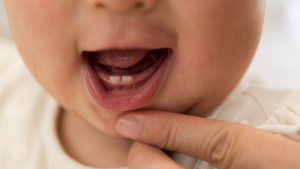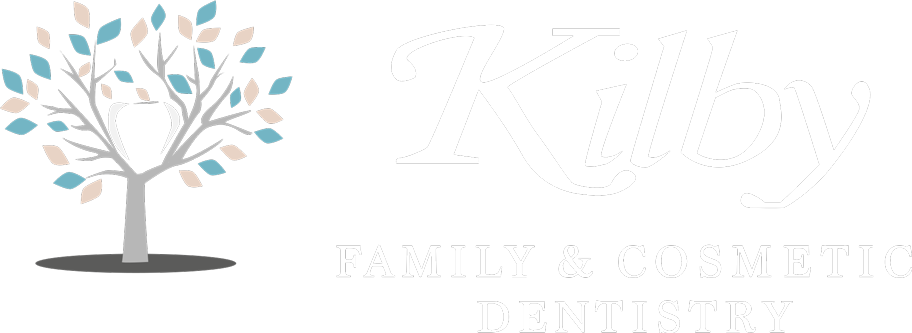Why Are The Baby Teeth So Important?
Baby teeth are important because they help with proper chewing and eating, help in speech development, and add to an attractive appearance. A child who can chew easily, speak clearly, and smile confidently is a happier child. Healthy primary teeth allow normal development of the jaw bones and muscles, save space for the permanent teeth and guide them into place. If a baby’s tooth is lost too soon, permanent teeth may come in crooked. Decayed baby teeth can cause pain, abscesses, and infections, and can spread to the permanent teeth. Also, your child’s general health can be affected if diseased baby teeth aren’t treated. Remember, some primary molars are not replaced until ages ten to fourteen, so they must last for years. It is very important to maintain the health of the primary teeth. Neglected cavities can and frequently do lead to problems that affect the developing permanent teeth.

Baby teeth are important for many reasons, including:
-
Proper chewing and eating.
Your child’s baby teeth are very important for their health and development. They help with chewing, speaking, and smiling. They also hold space in the jaws for permanent teeth that are growing under the gums. When a baby tooth is lost too early, the permanent teeth can drift into the empty space and make it difficult for other adult teeth to find room when they come in. This can make teeth crooked or crowded. That’s why starting infants off with good oral care can help protect their teeth for decades to come.
-
Providing space for the permanent teeth and guiding them into the correct position.
Did you know that your child’s teeth actually start developing before they’re even born? By around four months of age, the first teeth will begin to erupt through the gums. This usually starts with the lower central incisors, followed closely by the upper central incisors. Although all 20 baby teeth should be in place by age 3, the pace and order of their emergence can vary. Permanent teeth begin to appear around age 6, starting with the first molars and lower central incisors. At 8 years old, you can generally expect the bottom four primary teeth (lower central and lateral incisors) and the top four primary teeth (upper central and lateral incisors) to have fallen out and been replaced by permanent teeth.
-
Permitting normal development of the jaw bones and muscles.
Having healthy baby teeth is important for your child’s future dental health. They help with proper chewing and eating, aid in speech development and add to an attractive appearance. A child who can chew easily, speak clearly and smile confidently is a happier child. Primary teeth also permit normal development of the jaw bones and muscles. They save space for the permanent teeth and guide them into position. If a baby tooth is lost too soon, the teeth beside it may tilt, causing permanent teeth to come in crooked. In addition, your child’s general health can be affected if diseased baby teeth are not treated.
-
Development of speech and add to an attractive appearance.
Did you know that baby teeth affect more than just a child’s smile? They also play a role in the development of speech and add to an attractive appearance. Unfortunately, neglected baby teeth often lead to dental problems which can affect development of adult teeth. That’s why starting infants off with good oral care can help protect their teeth for decades to come.
For more information check out this article by the American Dental Association.
